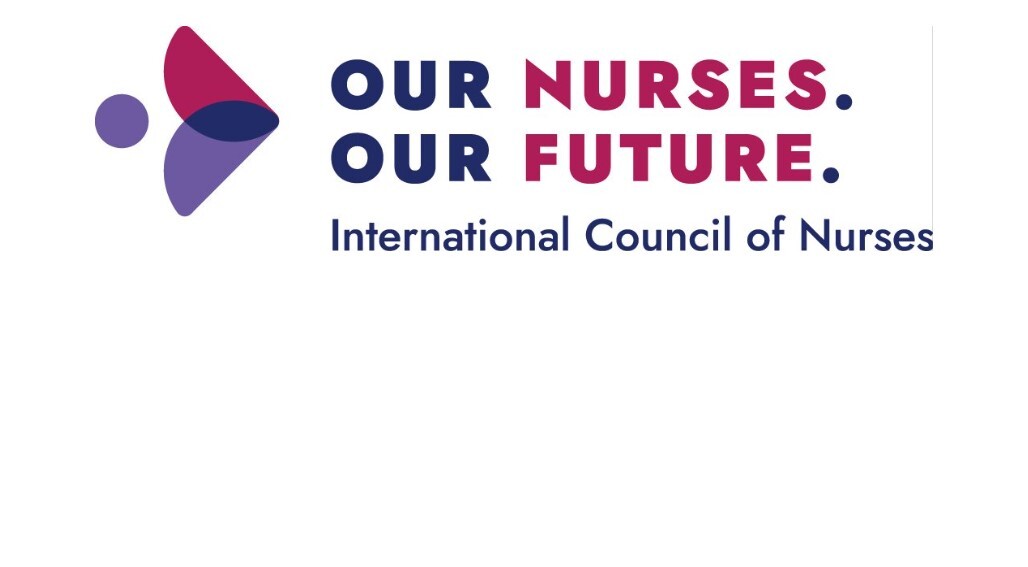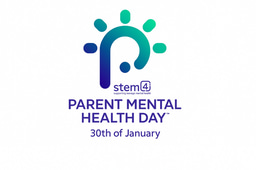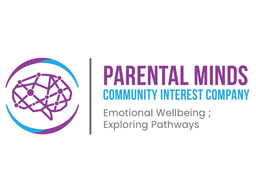International Nurses Day 2025 - Our Nurses. Our Future.
Published in Healthcare & Nursing, Sustainability, and Biomedical Research


The global community comes together to observe the International Council of Nurses (ICN)' International Nurses Day every May 12, the anniversary of Florence Nightingale's birth, this year focusing on nurses' health and well-being. This selection of content is related to the SDG 3 goal: "Ensure healthy lives and promote well-being for all at all ages" and to the related key targets.
Must-Read Springer Nature Book Highlights for Nurses
The Future of Nursing 2020-2030: Global Applications to Advance Health Equity. Explore how nursing can drive health equity worldwide, with insights into future trends and global applications.
Sickness in Health: Bullying in Nursing and other Health Professions. The author of this book and a Q&A post for International Nurses Day, Brenda Happell, provides an eye-opening look at bullying within healthcare professions, offering strategies for creating healthier work environments.
Workplace Wellness: From Resiliency to Suicide Prevention and Grief Management. A comprehensive guide to promoting wellness in healthcare settings, covering everything from resilience to suicide prevention and grief management.
Key Concepts and Issues in Nursing Ethics. Dive into the ethical challenges nurses face, with discussions on key concepts and issues in nursing ethics.
Coercion and Violence in Mental Health Settings. Understand the dynamics of coercion and violence in mental health care, and explore ways to improve patient and staff safety.
Mentoring in Nursing through Narrative Stories Across the World. Discover the power of storytelling in nursing mentorship, with inspiring narratives from around the globe.
Preventive Cardiovascular Nursing: Resilience across the Lifespan for Optimal Cardiovascular Wellness. Learn about preventive strategies in cardiovascular nursing, focusing on resilience and wellness throughout the lifespan.
Principles of Nursing in Kidney Care: Under the Auspices of EDTNA/ERCA and EKPF. Gain insights into best practices in kidney care nursing, guided by leading organisations in the field.
Since 2016, Springer, under the Auspices of the ICN, has published the Advanced Practice in Nursing book Series of concise monographs exploring various aspects of advanced practice nursing at the international level, authored by prominent nurse experts. Springer also publishes a large program of approximately 200 academic nursing titles on various topics, which can be found here.

Join Springer Nursing Editors at the ICN Congress 2025
Join the global nursing community for the ICN Congress 2025 in Helsinki on June 9-13, 2025. Meet Nathalie L'Horset-Poulain (LinkedIn) and Marie Come-Garry, Editors for @SpringerNursing at booth 24!
Highlights from Springer Nature journals
Impact of Long Working Hours on Nurses' Mental Health
A study reveals that long working hours and dissatisfaction with shifts are detrimental to nurses' mental health in Iran. Conversely, a supportive work environment can significantly improve their well-being. Addressing these issues is essential for maintaining a healthy nursing workforce.
Structural Stigma in Substance Use Disorder Care
Research highlights how structural stigma negatively affects the care of individuals with substance use disorder (SUD) in acute medicine units. This stigma impacts nurses' ability to provide quality care, underscoring the need to address these structural barriers.
Challenges in Paediatric Critical Care in Low-Resource Settings
A study sheds light on the difficulties paediatric critical care nurses face in low-resource settings, particularly in detecting patient deterioration. Nurses believe that data-driven algorithms could be beneficial, but successful implementation requires careful attention to design and workflow integration.
Registrant posts from the ISRCTN clinical study registry
 For International Nurses Day 2025, Clinical Nurse Specialist, Palle Bager, Aarhus University Hospital, posted about a study on a patient-centred nurse-led clinic for patients with liver cirrhosis. The results will be presented at the EASL International Liver Congress 2025.
For International Nurses Day 2025, Clinical Nurse Specialist, Palle Bager, Aarhus University Hospital, posted about a study on a patient-centred nurse-led clinic for patients with liver cirrhosis. The results will be presented at the EASL International Liver Congress 2025.
The following blog posts explore various innovative nursing and midwifery approaches highlighted by studies registered in the ISRCTN registry. The first discusses the development of a proactive diabetes review model led by nurses, aimed at improving patient outcomes through comprehensive management. The second highlights advancements in nursing assessment techniques, emphasising their crucial role in accurate diagnoses and personalised care. The third examines the midwife-led continuity of carer model, suggesting that continuous care from a dedicated midwife can enhance birth outcomes and maternal mental health, especially for vulnerable women. Lastly, the fourth post focuses on unique strategies to support nurses' mental health, underscoring the importance of mental well-being for healthcare professionals.
The author of the last post, Jasmine Laing (University of Oxford), also features in a Q&A for International Nurses Day 2025. In this post, the author shares a few thoughts on what drives their research and why it matters to them. The 2025 International Nurses Day theme strikes a chord and feels closely tied to the purpose behind their work. It’s a reminder that their research is about supporting nurses and helping shape a better future for healthcare.
Conclusion
To advocate, fundraise, organise an event, contact the media, and access social media resources, visit the official website for International Nurses Day.
Discover previous campaigns of curated journals, books, and publications at Springer Nature.
Follow the Topic
-
BMC Global and Public Health

An open access, transparent peer review journal publishing outstanding and influential research and opinion of broad interest to all professional communities involved in global and public health research, policy-making, implementation and delivery worldwide.
-
ISRCTN: The UK’s Clinical Study Registry

A primary clinical trial registry recognised by WHO and ICMJE that accepts studies involving human subjects or populations with outcome measures assessing effects on human health and well-being, including studies in healthcare, social care, education, workplace safety and economic development.
-
Harm Reduction Journal

This journal publishes research and commentary on approaches diminishing the harm of stigmatization, marginalization and criminalization of public health, human rights and social justice issues, as well as rebuking the de facto criminalization of marginalized and stigmatized communities.
-
Cost Effectiveness and Resource Allocation

This journal considers manuscripts on all aspects of cost-effectiveness analysis, including conceptual or methodological work, economic evaluations, and policy analysis related to resource allocation at a national or international level.
Related Collections
With Collections, you can get published faster and increase your visibility.
Repairable damage: harm reduction and US policy
Recent shifts in US policy and the approach to public health have placed renewed pressure on communities that already face significant health and social challenges. Policy decisions increasingly prioritize criminalization or abstinence-based strategies over interventions that have been consistently shown to reduce harm. These choices reflect a broader trend of sidelining empirical evidence, with real-world consequences for public health.
As a result, morbidity and mortality have increased among people who use drugs, experience homelessness, or who are involved in the US criminal justice system. Rates of preventable illness and infectious disease are also rising. Rhetoric and stigma further undermine public trust and discourage engagement with health services, disproportionately affecting marginalized populations.
Harm Reduction Journal has commissioned a collection of articles to highlight how evidence-based harm reduction strategies – grounded in science, dignity and practical outcomes – can inform more effective, humane public health responses.
This Collection supports and amplifies research related to SDG 3, Good Health and Well-Being, SDG 5, Gender Equality, SDG 10, Reduced Inequalities, and SDG 16, Peace, Justice and Strong Institutions.
All submissions in this collection undergo the journal’s standard peer review process. Similarly, all manuscripts authored by a Guest Editor(s) will be handled by the Editor-in-Chief. As an open access publication, this journal levies an article processing fee (details here). We recognize that many key stakeholders may not have access to such resources and are committed to supporting participation in this issue wherever resources are a barrier. For more information about what support may be available, please visit OA funding and support, or email OAfundingpolicy@springernature.com or the Editor-in-Chief.
Publishing Model: Open Access
Deadline: Aug 18, 2026
Indigenous communities and harm reduction
Indigenous peoples, defined as the original inhabitants of lands with longstanding cultural, political, and spiritual ties that predate colonization, face unique challenges that stem from historical injustices, social marginalization, and systemic discrimination. These factors create complex environments where public health, human rights, and social justice intersect. By deepening our understanding of these challenges, we not only enrich academic discourse, but also pave the way for more effective, culturally relevant harm reduction strategies that resonate with Indigenous communities.
Significant advances have already been made in understanding the specific needs and realities of Indigenous communities concerning harm reduction. For instance, the integration of traditional healing practices with contemporary harm reduction strategies has demonstrated promising outcomes. Indigenous-led research initiatives have brought forth unique insights into the effectiveness of harm reduction programs tailored to the cultural and social contexts of Indigenous peoples. Furthermore, collaborative partnerships between Indigenous organizations and public health entities have begun to reshape policy discussions, ensuring that Indigenous voices are front and center in the formulation of harm reduction strategies.
However, there is still much work to be done. The future of this research area holds immense potential for transformative change. By continuing to explore the intricate relationships between Indigenous identities, cultural practices, and harm reduction, we can anticipate the development of innovative, community-driven programs. These programs could harness the power of Indigenous knowledge systems to inform public health approaches, fostering resilience and healing in the face of adversity. Advancements in technology may also allow for more nuanced data collection and analysis, enabling a deeper understanding of the lived experiences of Indigenous individuals and communities.
Topics of interest within this Special Collection on Indigenous communities and harm reduction include, but are not limited to:
● Traditional healing and harm reduction
● Culturally competent care
● Patterns of substance use
● Policy impacts on Indigenous health
● Collaborative research methodologies
● Historical trauma and recovery.
● Indigenous rights and harm reduction
● Community-led initiatives
● Community-based participatory research/methods
● Public health vending machines
● Stimulant use and associated harm reduction strategies
● Indigenous-led syringe services programs
● Indigenous-led models and “culture-as-healing” in harm reduction
● Sovereignty, criminalization, and decolonizing policy & practice
● Youth, kinship, and intergenerational harm reduction
● Methods/metrics: Indigenous data sovereignty, CBPR, and evaluation
● Access in rural/remote settings: SSPs, MOUD, telehealth, & mobile care.
This Collection supports and amplifies research related to SDG 3, Good Health and Well-Being and SDG 10, Reduced Inequalities.
All submissions in this collection undergo the journal’s standard peer review process. Similarly, all manuscripts authored by a Guest Editor(s) will be handled by the Editor-in-Chief. As an open access publication, this journal levies an article processing fee (details here). We recognize that many key stakeholders may not have access to such resources and are committed to supporting participation in this issue wherever resources are a barrier. For more information about what support may be available, please visit OA funding and support, or email OAfundingpolicy@springernature.com or the Editor-in-Chief.
Publishing Model: Open Access
Deadline: Sep 01, 2026





Please sign in or register for FREE
If you are a registered user on Research Communities by Springer Nature, please sign in